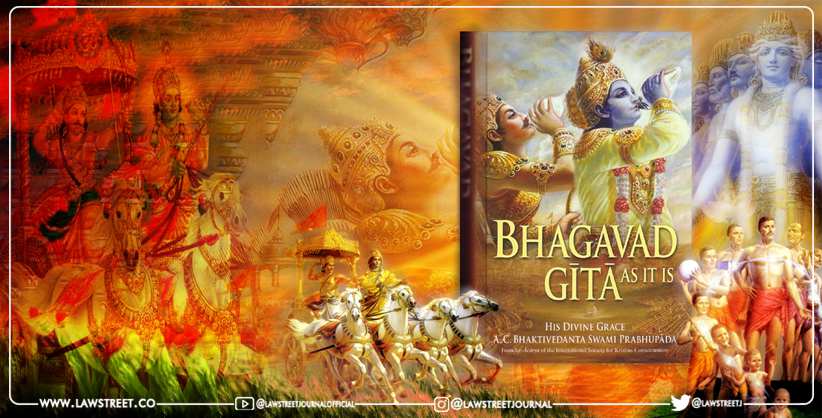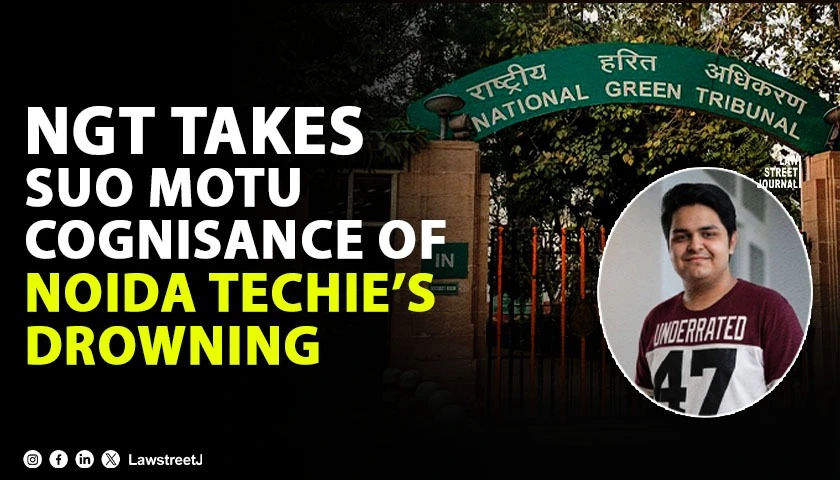In a Public Interest Litigation (PIL) challenging a decision by the State's Department of Education mandating the study of the Bhagavad Gita for students in classes 6 - 12 in the upcoming academic year, the Gujarat High Court on Monday served notice to the State and Central governments. [Jamiat Ulama-e-Hind Gujarat v. Union of India]
While seeking the government's answer to the petition filed by Jamiat Ulama-e-Hind, a bench comprising Chief Justice Aravind Kumar and Justice Ashutosh J. Shastri declined to consider the petitioner's request for a stay on the governments decision.
According to the petition, the resolution was an improper use of authority that violated Articles 14, 28, and other fundamental rights and went against the fundamental constitutional idea of secularism. It was submitted that the resolution breached Article 28 of the Constitution, which forbids the teaching of religion in educational institutions that are entirely supported by public money.
It was stated that "it is an undeniable fact that the Gita is a holy book of the Hindus and all the ideals enunciated in the Gita are interwoven with the beliefs of Hinduism" in this regard. The Gita would be taught in Gujarati classrooms, the state's Education Minister declared in March of this year. The question is whether it should be done by giving priority to the values and principles of one religion's holy book, according to advocate Mihir Joshi, who is representing JUEH. Values and principles of Indian culture and the system of knowledge can certainly be prescribed in the school curriculum, Joshi said.
The petitioners emphasised their worry that teaching only one religion to students would have the effect of indoctrinating impressionable young minds with the idea that one religion is superior to others, which would then affect the exercise of free choice and conscience protected by Articles 21 and 25.
The petition stated that resolution fell short of doing a logical investigation of the large and varied literature that represented the rich and ancient Indian civilization. According to Mr. Joshi, "the state education department issued a resolution issuing a directive to include Indian culture and Indian knowledge system from 202223 by including the value and principles of Srimad Bhagavad Gita in class 612 in a manner that the children understand and take an interest."
"Under the guise of developing a value-based education system, the impugned resolution is rationally, and without proper determining principle, selects one book as a book of values and mandates teaching the same," the complaint read. Additionally, it was stated in the plea that the resolution's treatment of one faith above another violated constitutional morals.
The Gita will be introduced in educational topic textbooks for classes 6 - 8 through stories, readings, etc. The Gita will be covered in first language textbooks for grades 9 - 12 in the form of stories, reading material, etc. It will need to be mentioned during prayers. He stated, paraphrasing the resolution, "Various activities such as Gita-based shlok recitation, discussions, elocution, dramas, paintings, etc. must be organised."
The PIL further emphasised that the basic values of equality, fraternity, and justice as embodied in the Preamble of the Constitution must be taught in a secular state. With this, Mr. Joshi requested a stay on the resolution's execution, claiming that the Gujarat Council of Educational Research and Training's (GCERT) instruction to create a curriculum for the purpose is illegal and in violation of the law. However, the High Court refused to issue the stay, stating that it would not consider the request in the absence of an affidavit.
The case was scheduled for a second hearing on August 18, 2022, by the division bench.
The petitioners were represented by Senior Advocate Mihir Joshi and Advocate Isa Hakim.



